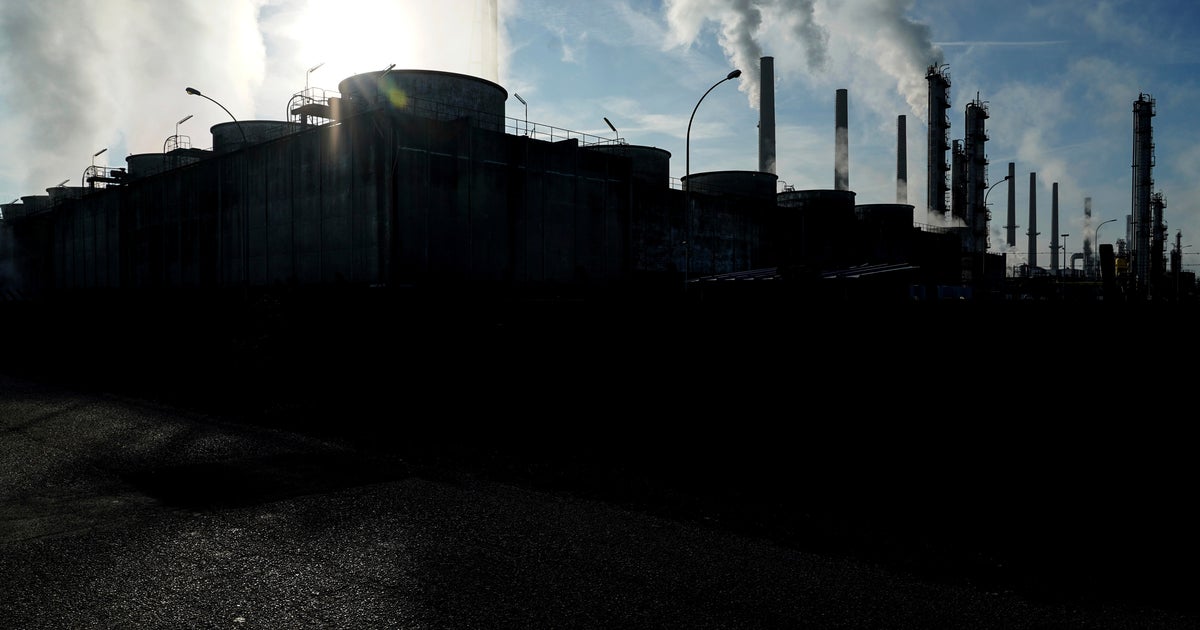Emissions from an Illinois sterilization plant gave high school teachers cancer, lawsuit claims
Five women who worked at a high school in Illinois said emissions from a nearby sterilizing plant caused them to develop cancer. They filed a lawsuit on Thursday night against Sterigenics, the company that operated the plant.
For over 30 years, Sterigenics sterilized medical equipment at its facility in Willowbrook, near Chicago, using a gas called ethylene oxide, a chemical known to cause cancer. Unknown to residents and the teachers at Hinsdale South High School, the plant released thousands of pounds of the invisible gas into the surrounding neighborhoods for decades, CBS News consumer investigative correspondent Anna Werner reports.
"Many of us taught with our windows wide open in the spring, in the fall," former teacher Peg Vahldieck said.
She and former educators Margaret Eskey Erdmanis, Rose Keppler, Carol Tufo and Jeannie Debroeck all said they had never heard of ethylene oxide. They all have cancer.
Over the years, they started noticing the number of their former colleagues who came down with cancer.
"There were five in the wing that I worked in," said Erdmanis, who has terminal blood cancer.
"In my department, there's six of us," added Debroeck, who has breast cancer.
Tufo, who also has breast cancer, said the teachers used to tell each other not to drink the water at the school because "we needed a reason for why people were sick."
Ethylene oxide is used to sterilize about half of all U.S. medical equipment in plants around the country. Experts have known for decades that the toxic gas could be linked to cancers including breast and blood cancers.
But it wasn't until last year that residents in nearly 20 communities around the country found out that by a new EPA analysis, their cancer risk from exposure to the chemical might now be higher.
The Sterigenics plant in Willowbrook, less than a mile from the high school, became a flashpoint for protests, bringing awareness and anger.
"I am as mad as can be," Tufo said. "I'm worried about the people that do not know. They need to know your health is at risk."
"It's not only a local issue," added Vahldieck. "It's a national issue, and people are unknowingly being exposed without having to be."
Sterigenics now faces multiple lawsuits, but the company told CBS News in a statement that it's "confident that it is not responsible for causing" cancers and that it has "consistently complied with and outperformed applicable regulations."
Lawyer Shawn Collins, who represents the five women, insists the company knew there were risks. He pointed to a letter from the Illinois EPA to the plant's former owner in 1984, warning that when its sterilizers were built, ethylene oxide emissions could be "several magnitudes higher than desirable."
"I've never seen a situation where before a company even opened its doors it was told, 'If you do what you say you want to do, you're really risking the health of your neighbors,' and then it went ahead and did it anyway," Collins said.
Sterigenics closed its Willowbrook plant in September, citing problems with a lease. But nationwide, more than 100 sterilizing plants still use ethylene oxide.
"There has to be another way to clean medical equipment rather than poisoning the rest of us in the United States or wherever they're doing it," Vahldieck said.
Medical device manufacturers disagree. Their association, AdvaMed, said medical sterilization facilities need to "remain open, in order to avoid a potentially catastrophic shortage of critical medical devices sterilized through this irreplaceable process."
Both AdvaMed and the FDA said if more sterilizing plants shut down right now, there'd be a shortage of some critical medical devices.
The EPA is working on a new emissions standard for the chemical for next year. Meanwhile, some of the other communities possibly at higher risk for cancer are looking at the issue.




